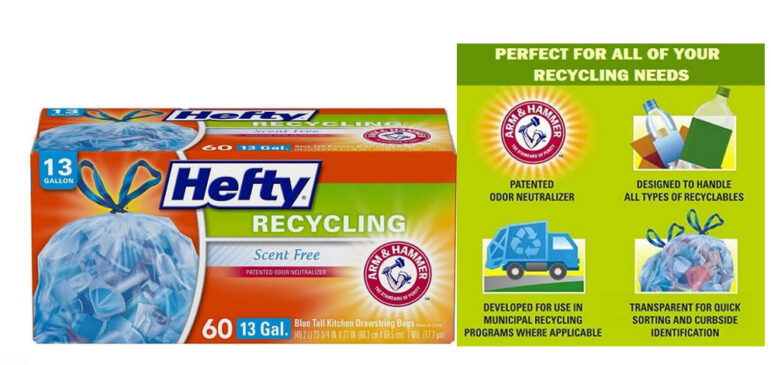Attorney General William Tong on Tuesday sued Reynolds Consumer Products for violations of the Connecticut Unfair Trade Practices Act, claiming the company falsely and deceptively marketed Hefty “Recycling Bags” despite full knowledge that their bags were incompatible with recycling facilities in Connecticut.
In fact, these “recycling” bags are no more recyclable than any other Hefty garbage bag product.

“Hefty Recycling Bags are not recyclable, and any recyclable items inside them are tossed on the trash heap. But you would never know that based on Reynolds’s false advertisements. Reynolds deceived Connecticut families and undermined our state’s recycling systems. Our lawsuit seeks to hold Reynolds accountable for these intentional misrepresentations,” said Attorney General Tong in a release.
“Recycling, and increasing the amount we recycle, is a major component of our State’s policy to sustainably reduce the amount of solid waste we dispose of,” DEEP Commissioner Katie Dykes said.
“Placing recyclables in plastic bags results in those items being thrown away, which is completely counter to what we need to be doing, and the intent of those residents and businesses doing the right thing by recycling,” Dykes said. “Contamination in our recycling system is costly, and the materials recovery facilities in our state have been clear that plastic bags in their mixed stream are detrimental and unsafe for their staff and their equipment, and can reduce the value of their commodities. DEEP is committed to working with Attorney General Tong to end this deceptive practice.”
“Many people take great care to purchase recyclable products, and it’s important for consumers to be able to easily identify if the products they buy are what they’re advertised to be,” said DCP Commissioner Michelle H. Seagull. “This is another example of why laws to prevent false or misleading advertisements are so important to help protect consumers.”
Reynolds advertises that their Hefty “Recycling Bags” are “perfect for all of your recycling needs” and “designed to handle all types of recyclables.”
These claims are false and deceptive.
There is nothing about these bags that make them more recyclable than any other basic garbage bag. Not only are the bags themselves not recyclable in Connecticut’s mixed recycling system, they can become wrapped and tangled in recycling equipment and cause disruptive malfunctions.
Any recyclable items placed inside these bags cannot be effectively recycled and are diverted to the waste stream for disposal. Reynolds is aware of this problem, and notes on its packaging that the bags were “developed for use in municipal recycling programs where applicable.” What they fail to acknowledge is there are no municipal recycling programs anywhere in Connecticut that can accept and recycle these bags and the recyclables they contain.
The Office of the Attorney General is unaware of any recycling facility nationwide that welcomes these bags.
These bags are fundamentally unsuitable for their advertised purpose.
Connecticut’s guidance and outreach materials (recyclect.com) clearly advise to “DO NOT” bag recyclables and that plastic bags should be placed in the trash or separately collected at distinct plastic film recycling points ( www.plasticfilmrecycling.org ).
Today’s action follows consumer concerns received by the Department of Energy and Environmental Protection about these bags being improper for recycling.
Connecticut’s suit seeks damages, including disgorgement of profits, civil penalties, costs and attorneys’ fees, as well as non-monetary relief to prevent further deception, and harm to Connecticut consumers and our recycling systems.
Just because an item is placed in a blue recycling bin doesn’t mean it will be or can be recycled. For more information about what can and cannot be recycled in Connecticut, visit https://www.recyclect.com.